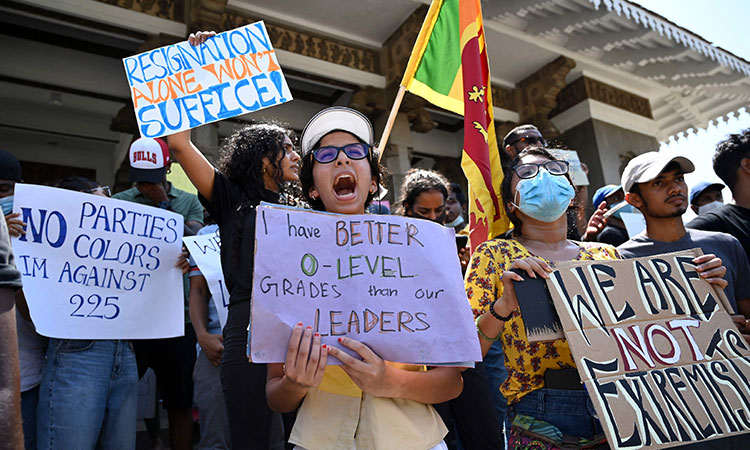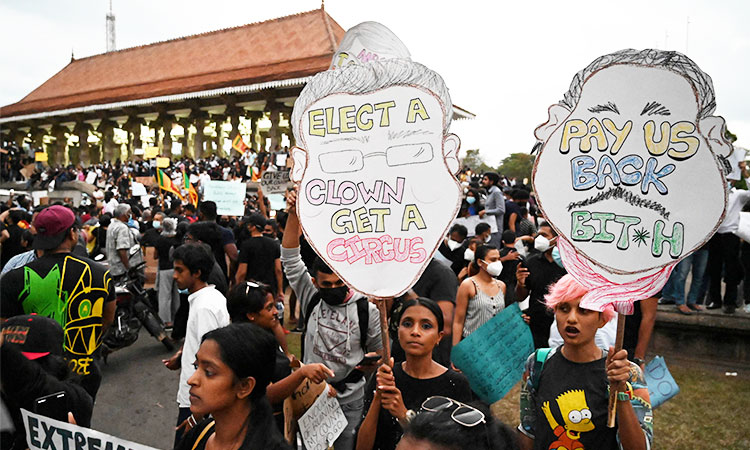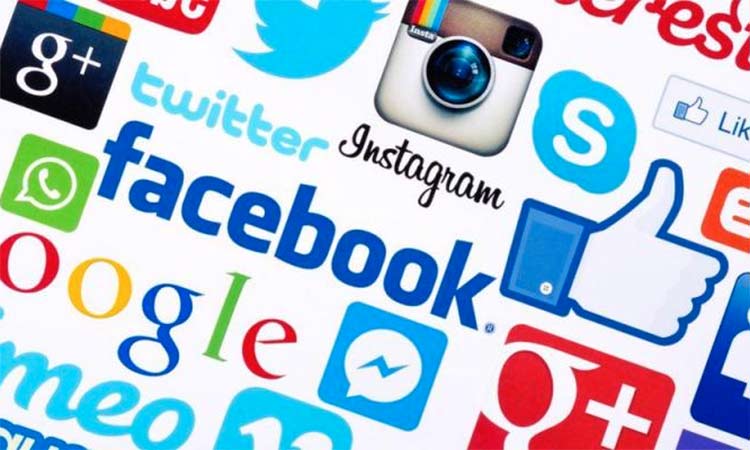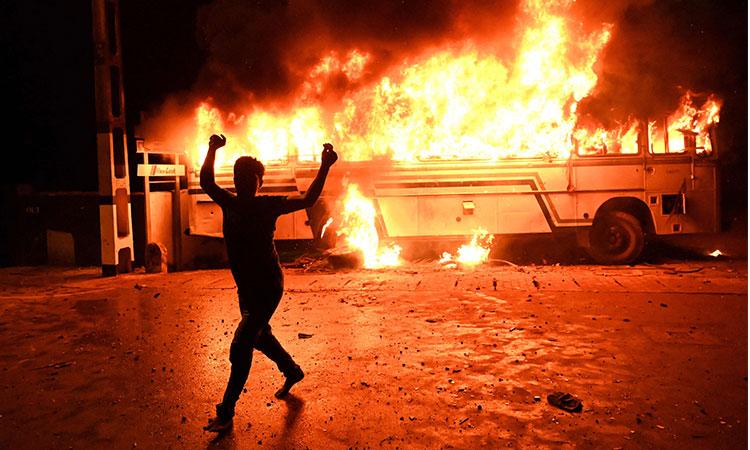By Yusuf Can on October 20, 2023
Disinformation and even complete fabrications have spread rapidly after Hamas’ attack on Israel. The actions of social media giants like X have enabled disinformation to spread quickly. Regulations may help, but every false claim could potentially provoke a wider conflict.

IMAGE CREDIT
Hamas' unprecedented attack on Israel on October 7 and the ongoing Hamas-Israel war in Gaza have again denoted the overwhelming impact of disinformation and misinformation in the digital age. With over 5,000 lives lost, the dissemination of false information, often through social media platforms, has not only added to the chaos but has also exacerbated the emotions of millions across the planet.
While social media platforms offer immediate access to information, they also serve as fertile ground for spreading falsehoods, making it challenging for the public to distinguish fact from fiction. The role of platform owners, content moderation, and regulatory measures is now under scrutiny as we grapple with the implications of disinformation during a devastating conflict.
In the aftermath of the Hamas' attack, the digital landscape became the epicenter of a disinformation pandemic
False information in conflict
In the aftermath of the Hamas' attack, the digital landscape became the epicenter of a disinformation pandemic. While there are numerous instances, some garnered more attention than others. A recent case involved the distribution of videos supposedly portraying an Israeli air assault. However, it became evident upon closer scrutiny that these videos had been extracted from video games, notably Arma 3. The interesting twist is how swiftly this facade was unveiled. It wasn't just the game's developers who stepped forward but also a community of online users intimately familiar with the game. Nevertheless, the fabricated imagery continued to thrive.
Those with more insidious motivations went well and beyond and created a fake White House announcement. An image resembling a screenshot of a supposed White House document suggested that Israel was being provided with $8 billion in aid, implying that this would hinder aid for Ukraine. Although the White House denied issuing any such statement, the fabricated image continued to spread.
Mainstream media outlets also experienced their fair share of fake footage. A manufactured video claimed to show a BBC report declaring that weapons provided by NATO to Ukraine had been sold to Hamas. The circulation of the content continued to spread despite the BBC denying the existence of such a report. Last but not least, the US Embassy in Lebanon had to put out a statement denying that the embassy was being evacuated after false reports garnered attention online.
Even the US President is not immune to disinformation. The White House had to retract President Joe Biden's statement stating he saw images of children beheaded by Hamas during a meeting with Jewish leaders at the White House. However, the White House clarified that these images were based on reports from Israeli government officials and media, and they had not been independently verified. These unverified claims gained traction online, further intensifying the high emotional tensions.
In the recent al-Ahli hospital explosion in Gaza, a misleading video circulated online, falsely claiming that it showed a failed Hamas rocket hitting the hospital. This video, initially from 2022, had no direct connection to the recent hospital incident. This episode also highlights the danger of disinformation during crises, especially those involving civilian casualties and war crimes, as it can inflame emotions and lead to hasty judgments, fueling online debates and deepening divides.
Fueling the disinformation Fire on “X”
The role of Elon Musk and his platform X (formerly Twitter) in the increase of disinformation during the Israel-Hamas war merits particular attention. Musk has faced criticism for the platform's handling of disinformation since he purchased the company. Musk's declared commitment to freedom of expression and his platform's transformation into X have raised concerns about spreading conspiracy theories and antisemitism.
In fact, Musk and Israeli Prime Minister Benjamin Netanyahu met and discussed the issue of antisemitism on X only recently. Experts attribute the proliferation of disinformation on X during the conflict to Musk's changes over the past year, including the decision to disband the company’s Trust and Safety Council responsible for content moderation. The platform's focus has shifted from verifying facts to maximizing view counts, possibly incentivizing users to share information without considering its trustworthiness.
In addition, the algorithm on X has been modified to prioritize posts with the maximum engagement, encouraging insidious users to share disinformation since dramatic and shocking content often performs exceptionally well, therefore distorting reality. Engagement with conflict-related images and videos creates a strong incentive for individuals pushing specific narratives to share old footage from unrelated events. Posts from X users with premium subscriptions (marked by a blue checkmark) were boosted to the top of users' news feeds. While the blue checkmark was initially intended to foster a better user experience, it inadvertently led to the elevation of unverified and misleading content. Such content often garnered hundreds of thousands of views and engagements, spreading fabrications at an unparalleled pace.
While X has garnered significant attention, other platforms such as TikTok, YouTube, and Telegram have also struggled with false information regarding the Israel-Hamas war
While X has garnered significant attention, other platforms such as TikTok, YouTube, and Telegram have also struggled with false information regarding the Israel-Hamas war. Similar to previous crises, content from the conflict initially appeared on encrypted messaging platforms like Telegram. While Telegram can serve as a primary source for footage, the lack of vetting and fact-checking on such media means that information can and is often taken out of context when shared on platforms like X. This prevalent problem underlines the challenges of addressing disinformation, as it often gains prominence due to its ability to elicit strong reactions and go viral. Each of these platforms has the power to shape public perception beyond the digital realm, potentially influencing geopolitical outcomes.
The EU Crackdown on Social Media Giants
The European Union is cracking down on tech giants to curb the rampant spread of disinformation across social media platforms. Mark Zuckerberg's Meta, the conglomerate that owns Facebook and Instagram, has been served an injunction: comply with European law within 24 hours or face the consequences. X didn't escape the EU's crosshairs either. Thierry Breton, the EU's industry chief, has urged Meta and X to demonstrate "timely, diligent, and objective action" to combat the spread of disinformation. He had given them just one day to provide a detailed account of the "proportionate and effective" measures they had taken.
Breton has demanded that Meta uphold its end of the bargain. The company has responded by setting up a special operations center to monitor and counter the evolving situation. Still, the EU insists that the response must be comprehensive and swift. This isn't just a warning shot; it's part of a broader effort to enforce the EU's Digital Services Act (DSA), designed to protect users on these massive tech platforms. This law has already come into force, with firms being granted time to ensure their systems comply. But as of late August 2023, the strictest rules are now in play for platforms with over 45 million EU users, including X.
Musk's X or Zuckerberg's Meta are not the only companies facing the EU's scrutiny. Breton has written warning letters to the CEOs of other companies, such as TikTok. However, no formal probes have been initiated yet except for announcing the investigation of X. The EU's stance underscores the global battle against disinformation, especially during critical conflicts like the Israel-Hamas war. Musk's response, demanding evidence of violations, echoes a growing debate about the balance between freedom of expression and the responsibility of tech companies to protect the public from false information and hate speech.
It is a well-known fact that false information has the potential to influence public opinion, create confusion and fear, and even shape government policies
Navigating the Disinformation Dilemma
It is a well-known fact that false information has the potential to influence public opinion, create confusion and fear, and even shape government policies. This confusion can hinder informed decision-making. Manipulative content often stokes strong emotions like anger, fear, or sympathy. These emotions can be redirected to serve a specific agenda, often by insidious actors. Yet even more daunting is that false information involving multiple nations can strain international relations.
As the EU pushes for transparency and accountability from tech giants, this serves as a stark reminder that the era of self-regulation in the tech world might be, and more importantly, should be coming to an end. The EU's enforcement of the DSA isn't just a regulatory maneuver, it's a battle to safeguard democracy and public discourse during times of crisis. In the era of instant information sharing, platforms must act swiftly and decisively to counter disinformation. As these examples show, there have never been more drastic consequences than with the Israel-Hamas war, where every post, claim, or video, even complete fabrications, could potentially widen the present conflict and inflict actual suffering.
The views expressed in these articles are those of the author and do not reflect an official position of the Wilson Center.
ABOUT THE AUTHOR

YUSUF CAN
Program Coordinator

MIDDLE EAST PROGRAM
The Wilson Center’s Middle East Program serves as a crucial resource for the policymaking community and beyond, providing analyses and research that helps inform U.S. foreign policymaking, stimulates public debate, and expands knowledge about issues in the wider Middle East and North Africa (MENA) region. Read more
That “hospital explosion” wasn’t really a hospital explosion.

Screenshot via PBS
The Editorial Board.
October 27, 2023 |
Editor’s note: Thank you for reading to the Editorial Board, your place for politics in plain English for normal people and the common good. This humble newsletter is how I make a living. It’s how I pay for my daughter’s piano lessons and nature programs and all those things. Some have asked how they can support the EB without committing to a subscription. Here’s the tip jar! In any case, many thanks for reading the EB! –JS
I wanted to interview Nicholas Grossman regarding the role of misinformation in the Israel-Hamas war. I hoped to ask the professor of international relations at the University of Illinois, and senior editor of Arc Digital, about misinformation that arose from American reporting on an explosion at a hospital in Gaza.
You know what? I ended up repeating a bit of misinformation!
I asked him to lay out the facts about a “hospital explosion” that “killed hundreds,” and he said nuh-uh (not his words). In fact, Professor Grossman said, “there never were hundreds killed by an explosion at that hospital. Media reported that the hospital was destroyed by an Israeli airstrike killing 500, but that was based on something a Hamas-controlled agency said and was never supported by evidence.”
“This instance wasn’t normal. While there’s often partial and false info coming out of wars, it is not normal for major media outlets, such as the Times, to publish false information. But this time, many did.”
Professor Grossman went on to say “what apparently did happen is something hit a nearby parking lot and caused a smaller explosion, most likely a rocket fired from Gaza towards Israel that fell short (ie, not an Israeli projectile). People were camping in the parking lot, and the explosion killed some of them, but far less than the originally reported number. The estimates I’ve seen range from 10 to 50.”
My point isn’t to draw attention to my error, but to highlight the pernicious influence of misinformation on everyone, even those, like me, who are at least aware of that pernicious influence, and who are taking the time to ask knowledgeable people about it in times of war.
Now imagine the pernicious influence of misinformation on people who have no such awareness, or more importantly, on governments that are invested in misinformation being taken as fact. Scaled big enough, that misinformation could affect choices leaders make. As you will see in the rest of my interview, the misinformation that arose from American reporting on the “hospital explosion” could end up shaping the war.
JS: The Gaza hospital explosion story produced a lot of misinformation very quickly. Some say that was an inflection point in a potential widening of the conflict. But isn’t misinformation kinda normal?
NG: Misinformation is pretty normal, especially in war. Combatants try to spin news in their favor, and sometimes lie. They have trouble seeing through the chaos — known as the “fog of war” — to know exactly what’s happening, and it’s even harder for outside observers.
But this instance wasn’t normal. While there’s often partial and false info coming out of wars, it is not normal for major media outlets, such as the Times, to publish false information. But this time, many did. Politicians in various countries treated it as fact. Protestors surrounded US embassies. The King of Jordan canceled a planned meeting with President Biden. The news media error was big enough that the Times put out a long editor’s note explaining and apologizing.
JS: What challenge does Biden face given this misinformation? Just by stating the facts as known, he risks his “honest broker” position, no?
NG: If anyone still believes the false story, even though it’s been corrected, they would likely see that the president saying that it’s false as bias towards Israel. Some who acknowledge that it’s false still say that, because while Israel didn’t bomb that hospital or kill those people, they’re bombing many targets in Gaza and killing many people.
But those crowds are probably impossible to satisfy, and Biden isn’t about to say that false stories are true in an attempt to satisfy them.
Where it creates a serious challenge is in reactions from major players. If Hezbollah, Syria, Iran and others sympathetic to Hamas’ side believe that the hospital attack happened — or even if the leaders know it’s false but a lot of their people still believe it — they could become more likely to intervene and widen the war. If Arab leaders believe it, or feel a need to placate a public that believes it, they will be less likely to support diplomacy or work with the US to manage the crisis.
JS: Hussein Ibish has said the key to ending this is to stop dehumanizing both sides, in this case Israelis and Palestinians, and start “rehumanizing” them. I trust Hussein means well, but revenge has a powerful pull on the psyche. What can leaders of good faith do?
NG: There’s a lot of well-meaning commentary that offers hope and a vision for the future, but doesn’t give anyone anything actionable to do now. “Rehumanizing both sides” sounds wonderful, but I don’t know how to do it in the short-term, and it doesn’t answer questions like “how can Israel avoid a repeat of the deadly Hamas attacks?”
The best leaders may be able to do is frequently remind Israel that thinking strategically yields better outcomes than lashing out in vengeance. That’s apparently been a focus for the Biden administration, as they’ve held up post-9/11 America as a cautionary tale, stressed that if Israel is going to overthrow Hamas they need to plan for what comes after, and pushed Israel to allow more humanitarian aid into Gaza.
JS: Relatedly, what is the president doing right? Wrong? Some say he’s giving a free pass to Israel. Others say his left flank is going to be a problem for him. Others still are calling him a war president by proxy.
NG: It’s a really hard situation and I think he’s handled it well under the circumstances. In particular, supporting Israel in public has given him more leverage with the Israelis behind the scenes, which he’s used to delay an Israeli ground invasion, get humanitarian supplies into Gaza, and more. He’s also sent clear signals to Iran that the US does not want the war to widen, but is prepared to, which functions as deterrence.
As for something Biden did wrong? I thought his speech overdid the links between Russia-Ukraine and Israel-Hamas, miscasting Israel as Ukraine and Russia as Hamas. The wars, the combatants, and the overall situations are too different in too many ways. Russia-Ukraine is pretty straightforward. Israel-Palestine is anything but.
On “free pass to Israel,” I’d say it’s clear that Biden is supporting Israel after the October 7 Hamas attacks, but not simply going along with whatever Israel wants. Some Americans (and others) want Biden to be more critical of Israel, to stop US military aid, to make America’s priority stopping the Israeli military, or take other steps. But “free pass” is more political hyperbole than objective analysis.
Regarding Biden’s “left flank,” it’s hard to say. For one, it’s impossible to know now what American voters will have at the front of their minds when voting in November 2024. Some criticism of Biden about Israel from the left is a genuine criticism by Biden voters, and some is by activists, commentators, podcasters, etc., who’d never vote Biden, and who guaranteed that Biden would lose in 2020 and Democrats would lose the 2022 midterms. How, or if, US policy towards today’s events in Israel and Gaza impacts the next American election — I don’t know.
And I don’t think others really know either.
“War president by proxy” is ridiculous. A lot of things happen in the world that are outside America’s control. Hamas killing 1,400 people in Israel was one of them, and Israel responding to that militarily is another. As a global leader, the US president plays a role in managing various crises. Israel and Hamas have fought many times, across many presidencies, and the US has been giving Israel aid throughout.
JS: Some say Trump’s “isolationist” tendencies are better than Biden’s “internationalist” tendencies. Is this a real debate or false binary?
NG: In general, it’s a false binary. There are degrees of isolationism and interventionism, and circumstances can change views. George W. Bush ran in 2000 as an anti-interventionist, and after Sept. 11 became the opposite. Specifically, it’s wrong. Trump deployed more US troops to Syria, authorized drone strikes, ordered the assassination of an Iranian general — the first foreign military commander targeted and killed by the US since World War II — and quite a bit more. Biden withdrew forces from Afghanistan and curtailed the drone program, then did a lot to help Ukraine after Russia’s invasion. It’s not cut and dry.
On Israel-Palestine, Trump wasn’t isolationist, taking various actions to shift US policy in favor of the Israeli government of Prime Minister Benjamin Netanyahu. That didn’t cause the violence we’re seeing, but it did worsen the situation in ways that made violence more likely.

John Stoehr is the editor of the Editorial Board. He writes the daily edition. Find him @johnastoehr
Inna Lazareva,Adam Smith,Avi Asher-Schapiro
Published: October 12, 2023

A dove flies over the debris of houses destroyed in Israeli strikes, in Khan Younis in the southern Gaza Strip
What’s the context?
Israel-Hamas war sparks deluge of disinformation that spills over into the real world
Disinformation spreads worldwide after Hamas attack on Israel
Platforms struggle to moderate viral falsehoods
False narratives can manipulate opinion and hinder justice
TEL AVIV/LONDON/LOS ANGELES - False and misleading information has surged online since the militant Islamist group Hamas launched its surprise attack on Israel, manipulating world opinion, fomenting local confusion and bolstering calls for retribution, experts say.
Israel has since rained down retaliatory strikes on the Palestinian enclave of Gaza, leaving 180,000 homeless and 2.3 million without electricity or water.
At least 1,200 Israelis and 1,200 Palestinians have been killed in the conflict, according to reports.
Rights groups and researchers have warned against social media users sharing misleading or baseless claims, including miscaptioned imagery or altered documents, in an effort to shape public perception.

GO DEEPER

GO DEEPER
European Union industry chief Thierry Breton this week urged social media leaders Elon Musk and Mark Zuckerberg to tackle the spread of disinformation on their respective platforms - X, Facebook, and Instagram - to comply with new EU online content rules.
Here's what you need to know about disinformation during the conflict and how it's spreading:
What disinformation is spreading?
There have been four main narratives that have spread across social media, according to Jack Brewster, an editor for news rating website and misinformation tracker NewsGuard.
These are the key fake story lines identified by Brewster:that the attack against Israel was a false flag, a campaign perpetrated expressly to lay blame on an opponent.
that Israel is staging footage of dead children killed by Hamas.
that the U.S. administration approved an $8 billion aid package for Israel.
and that Ukraine sold weapons to Hamas.
The Arab Center for Social Media Advancement, a non-profit known as 7amleh, also tracked some inaccurate accounts of Jewish babies being held captive in Gaza, as well as of sexual abuse.
For families in the Middle East, disinformation can have a personal toll.
On Monday, a video on Musk's X platform purported to show Yaffa Adar, an 85-year-old grandmother, who was kidnapped from her home in Kibbutz Nir Oz near the border with Gaza on Saturday.
It shows footage of an older woman, surrounded by soldiers. The woman is seen resting after exiting a black van as soldiers hand her a bottle of water.
The video spread widely online, but on verification with the family, it became apparent the woman shown is not Adar.
“It was absolutely heartbreaking (to see that video) – to think that maybe she’s back and then to find out that it’s not her,” her granddaughter Adva Adar told Context.
What has helped fuel disinformation?
Across social media, dis- and misinformation have been spread about the violence in an echo of the fake news unleashed in the early stages of the Russia-Ukraine war, Brewster said.
The most notable change in the social media space is how X, formerly Twitter, is being used to spread disinformation, tech and media experts said.
“Some users have passed off video game footage as real, while others have shared clips from other events or wars entirely,” Brewster said.
Other social media platforms, such as TikTok, have been used to share out-of-context videos.
NewsGuard highlighted two videos purporting to show Israeli senior officials captured by Hamas - the men were in fact in the hands of Azerbaijan’s security service - and Hamas militants paragliding into Israel in a clip that was filmed in Egypt.
These videos received hundreds of thousands of views before being taken down.
TikTok did not provide comment when contacted by Context.
X directed Context to statements made by CEO Linda Yaccarino that it had "redistributed resources and refocused internal teams ... to address this rapidly evolving situation."
Theodora Skeadas, a former public policy staffer at Twitter who worked on content moderation, said that staffing cuts had significantly undermined the platform's capacity to tackle the deluge of doctored posts and misleading videos and images.
"The work that Twitter would have done in the past is (to) elevate reliable information, remove misinformation and content that violates the terms of service (and) add labels to certain posts for more context," she said.
How are platforms tackling the problem?
X has said that more than 500 unique Community Notes, a feature that lets users add context to potentially misleading content, have been posted about the conflict.
But Skeadas said community notes "can't keep up with the volume of posts during a crisis".
YouTube has said that graphic content may be allowed on the platform if it provides sufficient news value, but is moderating for videos that violate its rules.
Snap says it is monitoring for misinformation and incitement of violence.
Meta, which owns Instagram and Facebook, said a team of experts including Hebrew and Arabic speakers were monitoring the "rapidly evolving situation in real-time".
What are the real-world consequences?
The main aim of false narratives is to manipulate public opinion and justify collective punishment, Nadim Nashif, executive director of 7amleh, told Context.
“These phenomena have a considerable impact on ... access to information, something quite worrying in a context in which Palestinian narratives are censored and/or unable to make it to the online realm," he said.
This can lead to further calls for violence and to actual harm, as well as obscuring human rights violations and preventing justice from being served, he said.
Adar, whose grandmother is still missing, is worried that disinformation could prevent her family getting help.
“We are really looking for the world to understand the situation here – and then something like this comes up and people think that things are better, where they are not.”
New to Context? We'd love for you to find out a little more about what we do. Click here for a selection of our best work.
(Writing by Adam Smith; reporting by Inna Lazareva in Tel Aviv, Adam Smith in London, Avi Asher-Schapiro in Los Angeles; editing by Lyndsay Griffiths and Zoe Tabary)
The last thing that matters in any propaganda operation is whether there is any truth in it.

By Zoran Kusovac
Published On 14 Oct 2023
The Hamas Authority for Refugee Affairs has called Israel’s already notorious directive that all civilians should evacuate the northern part of the Gaza Strip “fake propaganda”.
Whoever wrote that is dead wrong, and was certainly not involved in the planning of last week’s armed incursion into Israel carried out by the Palestinian group’s armed wing, the Qassam Brigades. The last thing that matters in any propaganda operation is whether there is any truth in it.
KEEP READING
But the main purpose of the attack was not military, except possibly to the limited degree of taking hostages who can be used as human shields in case of (expected) Israeli armed retaliation on the ground. The real purpose of the action was Hamas’s desire to demonstrate what it is capable of, militarily and in terms of willingness to use extreme violence.
The action was planned as a message saying “This is what we can and will do” – and as such it falls under that important, even crucial, part of the art of war we call psychological warfare.
The term may be new – it was first used barely 80 years ago, at the beginning of World War II – but the actions it describes are as old as warfare itself, as old as humanity.
From time immemorial, military commanders knew that they stood a better chance of being victorious in battle if their enemy was weakened and demoralised by fear and uncertainty.
Ancient warrior chiefs knew that surprise is one of the most efficient military tactics. If you make your foes guess when and how you will attack, and especially if you make them expect you at a different place at a different time, you have already half won your battle. The other half of victory is achieved by striking your enemy when and where he did not expect you and overcoming his weakened resistance.
Many wars in the past have been won without ever waging or winning one decisive battle. US senator and former military officer in the Vietnam War, John McCain, stated that Vietnamese Commander-in-Chief General Vo Nguyen Giap beat the United States in war but never in battle. In that sense, Hamas beat Israel in last weekend’s battle, but it has not won the war. Yet it scored an important propaganda victory

Scenes of Hamas machinegunning Israelis – soldiers and civilians – caused outrage in Israel and most of the Western world. But in the eyes of many Palestinians, most of the rest of the Arab world and many Third World countries, the armed fighters demonstrated determination, nerves of steel, skill in the use of modern military technologies and total disregard for their own lives in an action that proved that underdogs can successfully challenge the domination of the big and the mighty. In that vast part of the world, Hamas scored an important propaganda victory.
In Israel and in the West, it shot itself in the foot, giving additional proof to those who consider Hamas fighters cold-blooded murderers and “terrorists”. It also unified Israelis who rallied together regardless of differences in politics or opinions.
Was Hamas aware of the effect the raid would produce? Certainly, but it obviously calculated that it was worth it for them to show themselves in a new light and again raise awareness of the Palestinians’ plight.
The Israeli response was as expected: first came deliberate aerial bombing of Gaza with doubtful military effect, and then came an immediate psychological warfare campaign. Propaganda and guns – a classic military strategy
Israel’s call to civilians to evacuate northern Gaza in 24 hours is pure propaganda in the function of war. Every military planner knows that even under extreme threat, civilians, who cannot be disciplined the way armies can, who resist attempts to instil order, who try to take with them possessions that slow them down, and try to find alternative routes and means etc, may only cover 20-25km (12.5-15.5 miles) in a day.
But when their numbers swell, with even 10,000 being huge, not to mention a million, they will simply block every road, including ones needed by the military to manoeuvre, and create chaos, panic and demoralisation.
This is exactly what Israel intended to do, but it succeeded only partially. Why? We’ll examine it tomorrow.
Just to add that I was right about the Israeli land attack on Gaza not happening on Friday night. I believe it will not happen today, either.
But I will not say it might not happen next weekend. That might be a realistic time for the Israeli army to have achieved their desired level of operational readiness.
SOURCE: AL JAZEERA














